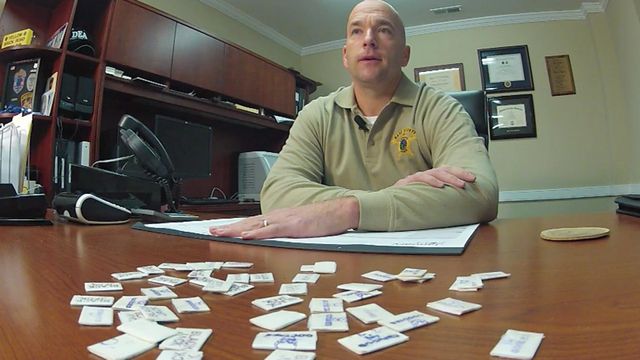'You're playing with a loaded gun:' NC heroin use on the rise
Heroin addiction is on the rise across the nation and in North Carolina, according to law enforcement and health experts, who say the recent death of Oscar-winning actor Philip Seymour Hoffman is a reminder that the drug knows no age or wealth limits.
Posted — Updated"In every corner of our state, heroin and opiate drug addiction threatens us," Shumlin said. "It threatens the safety that has always blessed our state. It is a crisis bubbling just beneath the surface that may be invisible to many, but is already highly visible to law enforcement, medical personnel, social service and addiction treatment providers, and too many Vermont families."
In North Carolina, especially the eastern part of the state, law enforcement officials say they are experiencing a surge in heroin that hasn't been seen in decades, especially among high school students.
“We’re arresting a lot of people who are 18, 19, 20, 21 years old who are supporting their own addiction by selling heroin,” said Lt. Dennis Wooten, with the Nash County Sheriff’s Office. “We’ve seen a lot of brown powder heroin, and our numbers have grown astronomically over the last four years.”
In 2012, Nash County investigators said they seized 48 grams of heroin. In 2013, that number jumped to 350 grams.
"At higher doses over time, the body becomes dependent on heroin. If dependent users stop heroin, they have withdrawal symptoms," according to the institute. "These symptoms include restlessness, muscle and bone pain, diarrhea and vomiting, and cold flashes with goose bumps."
A 20-year-old Nash County woman, who did not want to give her name, said heroin nearly destroyed her life. She is on house arrest at her parents’ home for selling drugs.
“I didn’t want to get in trouble, but I’m kind of glad I did, because all of these young people are dying off of it, and I could have been one of them,” she said.
Most heroin addicts start out using prescription painkillers, but they're more expensive and, due to changes in the law, are harder to come by than heroin. Users say heroin, like prescription painkillers, is a downer that helps them dull pain and relax, but the more they do, the more they need.
“I’ve done prescription pills and stuff like that, and the way they make you feel and the way heroin makes you feel is totally different,” the woman said. “It’s way strong.”
“Don’t do it. Definitely, don’t do it. It’s not worth it,” she added.
Law enforcement officials say one dose of heroin typically sells for about $10 to $20 on the streets, and addicts say they can use up to 50 hits a day. Heroin typically comes from other countries and eventually makes its way into the Northeast. Then, it comes down the Interstate 95 corridor right into Rocky Mount.
Investigators say arresting heroin addicts won't solve the problem.
“Decreasing the demand is probably our biggest hurdle, and the only way to do that is through education, getting people off drugs,” Wooten said.
“Many suburban kids with recreational use, as they got addicted, they couldn’t afford the prescription pain meds’ cost,” Clodfelter said.
“I’d tell (addicts), ‘You’re playing with a loaded gun, and it will go off. It will go off. Get help,’” he said.
• Credits
Copyright 2024 by Capitol Broadcasting Company. All rights reserved. This material may not be published, broadcast, rewritten or redistributed.






